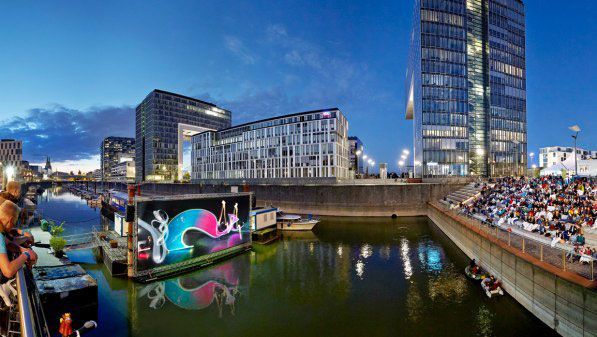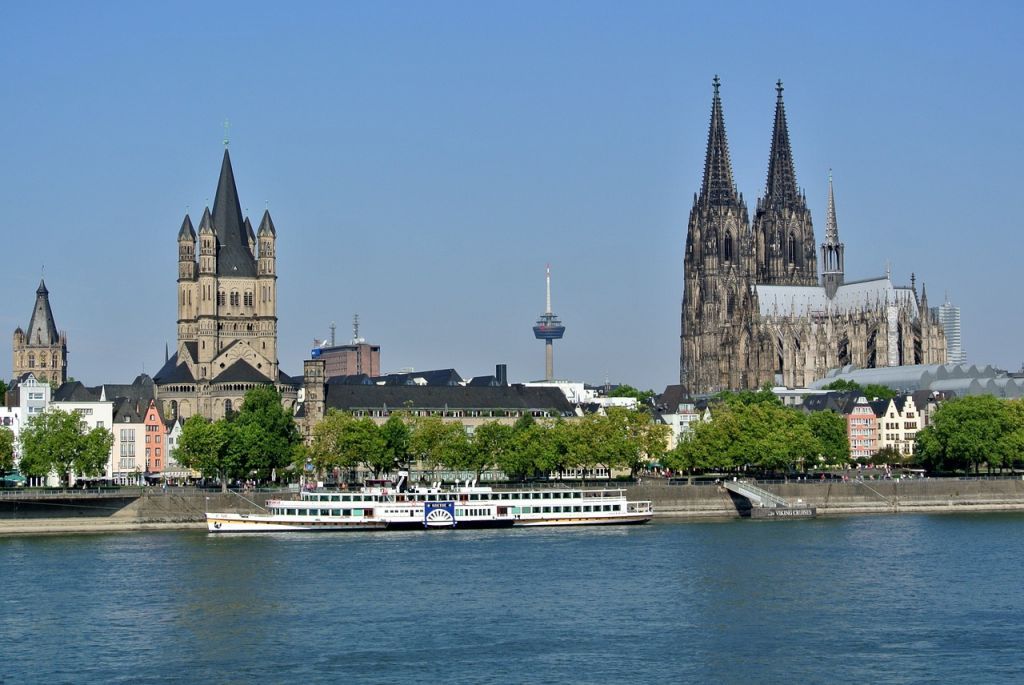Cologne Tourist Board, the official tourism organization of the city of Cologne, announced the city’s visitor figures for 2022.
The 2022 numbers show that tourism is back in Cologne. The State Statistical Office of North Rhine-Westphalia, IT.NRW, registered 3.2 million arrivals and 5.6 million overnight stays in Cologne hotels. This represents 85.3 percent of the overnight stays registered in 2019 — before the crisis.
Cologne’s rebound, which was largely thanks to its successful recovery measures, set a benchmark by comparison with other German cities such as Berlin (78 percent) and Frankfurt (79 percent).
“After two difficult years and numerous measures for revitalizing tourism in Cologne, we’ve successfully reversed the trend,” states Dr Jürgen Amann, CEO of the Cologne Tourist Board.
“The visitor figures are good, and Cologne hasn’t lost any of its appeals as a travel destination. It’s now up to us to take advantage of this opportunity for qualitative development.”

Changes in the tourism structure
The structure of this reinvigorated tourism has changed considerably. The trend is toward more leisure tourism from nearby markets and an overall decrease in business travellers. Promotable business trips such as trade fairs, business conferences and conventions are increasing once again, but the figures for traditional business trips will not return to the level that was reached before the crisis.
The most important source market is still Germany, which accounts for 69 percent of the total overnight stays. The Netherlands are in second place with 4.2 percent, a figure that significantly exceeds the level reached in 2019. The British market follows at 3 percent, showing that the British are more eager to travel than they had been expected to on account of Brexit. The USA occupies fourth place, at 2.9 percent.
Figures for hotel beds and event locations remain stable
The number of available hotel beds in Cologne was 35,905 in 2022 — 5.5 percent more than in 2019. The wave of bankruptcies that had been feared didn’t happen.
The event market also made a significant rebound. A total of 40,800 events were held in Cologne last year, attracting 3.72 million participants in presence. The number of events in the MICE sector (MICE = Meetings, Incentives, Conventions, Events) was 77 percent of the pre-pandemic level, and the number of participants was 83 percent of the figure for 2019. The figures for the event market are increasing — similar to those for the hotel segment. A total of 210 event venues were available in 2022 — a gratifying increase of 16 venues compared to 2019.
In 2022, the structural changes and challenges in this segment of business travel and tourism could be seen mainly in the dimensions and background structures of the organized events. The events were more regional than they had been in 2019, and the average event size was slightly larger. In 2022 the short time available for inquiries, as well as the concentration of events during certain periods, sometimes led to capacity bottlenecks for the providers.
The Cologne Convention Bureau as a knowledge hub
In order to learn more about future success factors in the MICE segment, the Cologne Convention Bureau (CCB) of the Cologne Tourist Board continues to be active in the Future Meeting Space innovation network of the Fraunhofer Institute (IAO) and the German Convention Bureau (GCB). In its capacity as a knowledge hub, the CCB will collect information and know-how and pass it along to its partners in the sector, as well as promote the interests of Cologne’s MICE sector to external partners.
Starting in 2024, Cologne will significantly optimize its capacity for conventions and congresses thanks to its new conference and event location Confex. In addition, the overall visitor experience in the area of promotable business trips will become even more important in the future since there will be an optimal combination of business events and opportunities to experience our city. Cologne is well positioned in this respect.
“Together with our partners, we have successfully guided Cologne’s tourism sector through two difficult years,” says Amann.
“In the future, the focus of our work will be on the qualitative development of tourism in Cologne. This requires us to enhance the profile of Cologne as a travel destination by strategically addressing selected target groups. This will enable us, together with our partners in the sector, to promote the sustainable development of value creation for our city of Cologne.”







